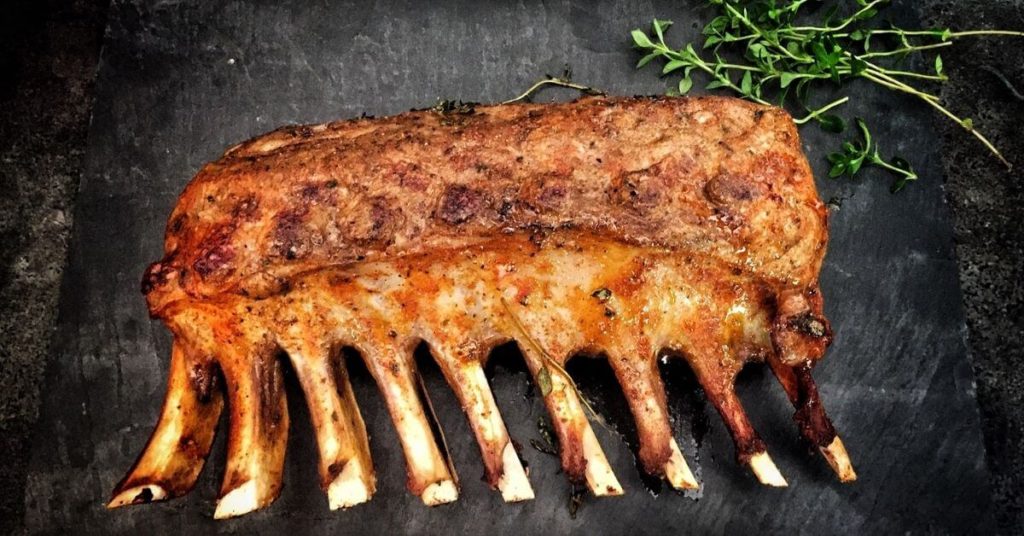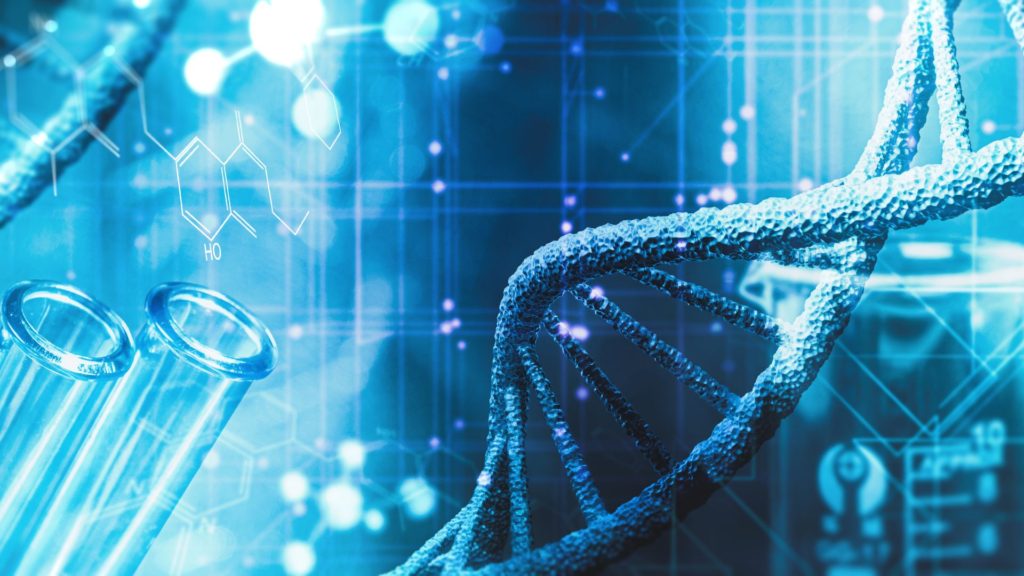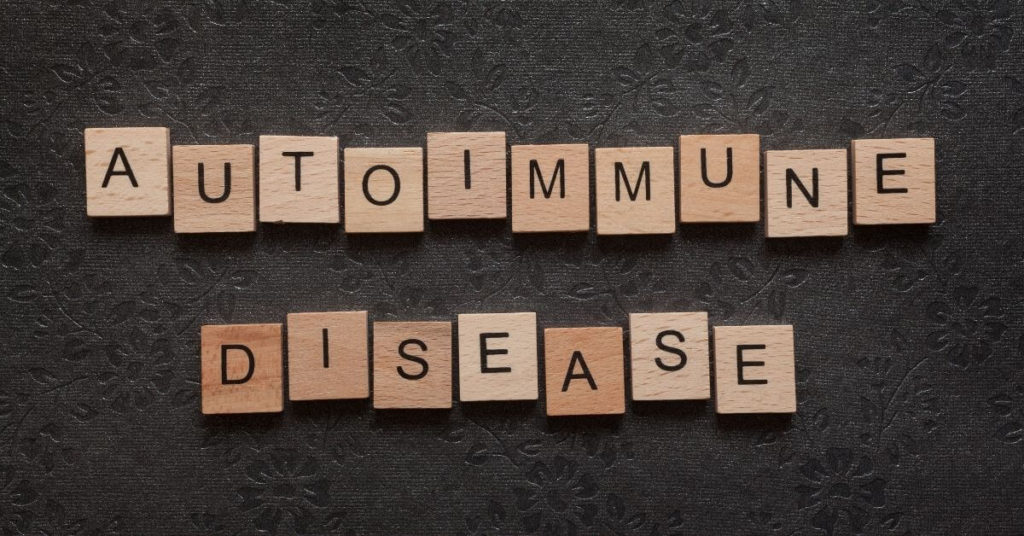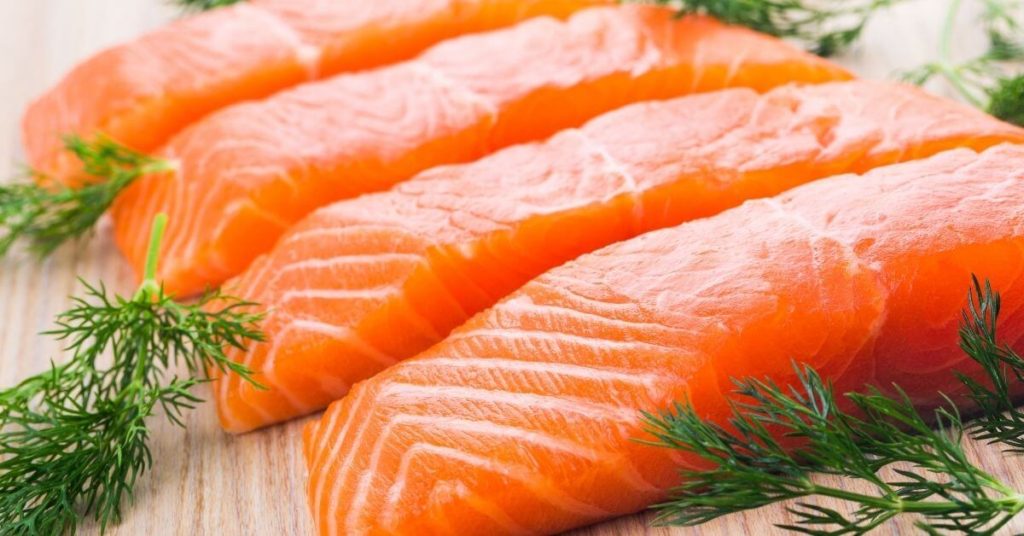The “carnivore diet” is a dietary approach that has been gaining popularity in recent years. It involves consuming only animal products, mainly meat, and excluding plant-based foods, which goes against the common consensus that whole plant foods are healthy. Despite this, many people have reported experiencing miraculous results after going on a 100% carnivore diet meal plan.
The carnivore diet has been known to offer several potential benefits, including weight loss, improved digestion, and increased energy levels.
However, these success stories are often followed by an overwhelming amount of misleading information regarding the benefits and risks of eliminating plants from your meals.
Therefore, it can be challenging to determine the truth behind this controversial diet.
To help uncover the truth behind the carnivore diet and what it means for you, let’s take a closer look at its potential.
The Truth Behind the Carnivore Diet: Exploring Its Potential for Your Health

Firstly, the carnivore diet has been reported to aid in weight loss. Since the diet is low in carbohydrates, it can help you lose weight quickly and effectively.
Additionally, many people have reported improved digestion after switching to a carnivore diet, as it eliminates many of the common digestive irritants found in plant-based foods.
Moreover, some carnivore dieters have reported increased energy levels and improved mental clarity after eliminating carbohydrates and relying on animal protein for fuel.
It is believed that the high protein content in animal products helps to regulate blood sugar levels, leading to stable energy levels throughout the day.
However, there are some risks associated with the carnivore diet, including the risk of nutrient deficiencies.
Since the diet excludes plant-based foods, it may be difficult to get all the essential vitamins and minerals needed for optimal health. Therefore, it is crucial to carefully plan your meals and supplement if necessary.
Another concern is the risk of heart disease, which may increase with a diet high in animal products, particularly if the meats consumed are high in saturated and trans fats.
Additionally, the carnivore diet is not sustainable from an environmental perspective since it promotes the consumption of animal products, which have a significant impact on the environment.
In conclusion, while the carnivore diet offers potential benefits, there are also risks associated with it. It is essential to consult a healthcare professional before starting this diet to ensure that it is safe and appropriate for your individual needs.
The Basics of the Carnivore Diet: Eliminating Plants and Embracing Animal Protein

The Carnivore Diet has been gaining popularity in recent years as a dietary approach that involves consuming only animal products.
This means eliminating all plants from your diet and consuming mostly meat, water, and salt. The goal of this dietary approach is to rely solely on animal protein as the primary source of nutrients.
Many proponents of the Carnivore Diet also recommend limiting dairy intake as much as possible. Only foods that are low in lactose, such as butter and hard cheeses, are permitted in small amounts.
By eliminating plant-based foods, the Carnivore Diet is considered one of the most restrictive dietary approaches.
The Carnivore Diet has been claimed to help induce rapid fat loss, reduce inflammation, reverse certain autoimmune conditions, heal chronic digestive issues, build muscle, and increase testosterone levels. Supporters of the diet believe that by eliminating plant-based foods, you can reset your digestive system and reduce inflammation, leading to improved health outcomes.
How the Carnivore Diet Can Lead to Rapid Weight Loss and Improved Gut Health While Alleviating Autoimmune Conditions

One of the primary benefits of the Carnivore Diet is that it can lead to rapid weight loss. This is due to the high protein content in animal products, which can help reduce appetite and increase satiety.
Additionally, the diet eliminates many of the common digestive irritants found in plant-based foods, leading to improved gut health.
Moreover, some proponents of the Carnivore Diet claim that it can improve certain autoimmune conditions, such as rheumatoid arthritis and multiple sclerosis.
By eliminating plant-based foods, which can contain anti-nutrients and lectins that irritate the gut, the Carnivore Diet is believed to reduce inflammation and promote healing.
However, there are also potential risks associated with the Carnivore Diet, particularly the risk of nutrient deficiencies.
Since the diet excludes plant-based foods, it can be challenging to get all the essential vitamins and minerals needed for optimal health.
Therefore, it is crucial to plan your meals and supplement, if necessary, carefully.
Additionally, the Carnivore Diet is a highly restrictive dietary approach that may not be sustainable for everyone. It is important to consult a healthcare professional before starting this diet to ensure that it is safe and appropriate for your individual needs.
In conclusion, the Carnivore Diet is a highly restrictive dietary approach that involves eliminating all plant-based foods and relying solely on animal products.
While it has been claimed to offer various health benefits, it is important to weigh the potential risks and consult a healthcare professional before starting this diet.
“The Hypothesis Behind The Carnivorous Claims

The carnivore diet is based on the hypothesis that humans are not designed to consume plant foods because they contain compounds that are harmful to animals.
Advocates of this diet believe that by eating only animal products, you can avoid these potentially toxic compounds and consume highly bioavailable micronutrients, healthy fats, and complete proteins without excess carbs.
Plants such as nuts and seeds are the most heavily defended foods, containing compounds that can provoke nutrient deficiencies and immune reactions.
Meat, on the other hand, is free of these compounds, making it a healthier choice. While this theory may seem compelling, it ignores the overwhelming evidence supporting the health benefits of whole plant foods, including those that are heavily defended.
It’s important to note that while some people with specific autoimmune conditions or plant-triggered digestive issues may benefit from a carnivore diet, it may not be the optimal approach for everyone.
Every diet has its nuances and shades of gray, and it’s crucial to find the approach that works best for you.
Let’s take a closer look at the potential benefits, results, and risks of going plant-free and explore the nuances of carnivorism.”
The Science-backed Benefits of Following a Carnivore Diet

As the carnivore diet gains popularity, it’s important to note that there is currently no high-quality research on all-meat or 100% animal-based diets.
However, by examining the existing literature on other diets and eating habits, we can begin to understand why many people have reported positive results after going 100% carnivorous.
One of the key benefits of the carnivore diet is that it promotes fat loss and muscle preservation.
By eliminating all plant-based foods and consuming mainly meat, the diet drastically reduces carb intake while increasing protein intake. This combination can help regulate hunger and promote satiety, leading to weight loss.
Additionally, consuming more animal protein with each meal stimulates muscle protein synthesis, which helps to build and maintain muscle mass.
This is especially important for individuals who are looking to improve their physical performance or prevent muscle loss due to aging.
It’s worth noting that while the carnivore diet may have benefits for weight loss and muscle gain, it may not be suitable for everyone.
It’s important to consult a healthcare professional before embarking on any drastic dietary changes, especially if you have pre-existing health conditions or concerns.
The potential benefits of following a carnivore diet are backed by science.
While there is currently no high-quality research on all-meat or 100% animal-based diets, existing literature on other diets and eating habits can help us understand why going 100% carnivorous has received such positive reviews.
One benefit is that it promotes fat loss and muscle preservation due to the absence of plants and increased protein consumption.
This can help control hunger and stimulate muscle protein synthesis, leading to a more sculpted physique.
Additionally, the carnivore diet can help reduce inflammation and increase autophagy, which is the natural process of cell repair and damage cleanup.
Calorie and carb restriction in the diet can help reduce inflammation levels and promote autophagy.
However, it is important to note that consuming high amounts of protein multiple times throughout the day can hinder autophagy. To fully experience the anti-inflammatory and autophagy-promoting effects, intermittent fasting should be incorporated into the carnivore diet.

A potential benefit of following a meat-only carnivore diet is the reduction of autoimmune-related symptoms.
By eliminating most food allergens and sensitivities that are commonly found in plant-based foods, the body may be able to recover from chronic immune responses triggered by these foods.
This could lead to a decrease in inflammation and a potential improvement in symptoms associated with autoimmune conditions.
One example of this is Mikhaila Peterson, who is a well-known advocate for the carnivore diet. After struggling with chronic depression and rheumatoid arthritis for most of her life, she adopted an all-meat diet, which reportedly helped alleviate her debilitating symptoms.
While more research is needed to understand the full impact of a carnivore diet on autoimmune-related symptoms, some individuals may find relief by eliminating plant-based foods from their diet.
It can be helpful for digestive issues provoked by certain plant foods.
The Carnivore diet has been suggested as a potential solution for those who suffer from digestive issues provoked by certain plant foods.
This approach involves consuming easily digestible foods that leave minimal residue behind, which can be beneficial for individuals dealing with symptoms of inflammatory bowel disease and irritable bowel syndrome that are triggered by plant fibers and other compounds.
Since meat is primarily made up of protein and fat, which are absorbed in the small intestine, there is little residue leftover to irritate or inflame the gut. This can provide relief to the gut and allow it to heal and rebuild.
However, the long-term effects of an all-meat diet on gut health and the microbiome remain uncertain and require further investigation.
The carnivore diet generally promotes ketosis.

The consumption of only animal products in the carnivore diet is known to promote the metabolic state of ketosis.
This is because the diet is naturally low in carbohydrates and high in fat, which encourages the body to switch from using glucose as its primary energy source to using ketones instead.
However, it’s important to note that eating too much protein can inhibit ketone production, and prevent the body from fully entering ketosis.
While the carnivore diet may induce ketosis, it’s worth considering that following a ketogenic diet can provide additional benefits beyond those offered by a carnivorous diet alone. Therefore, if you’re interested in adopting a carnivore diet, it may be beneficial to follow a ketogenic approach. We will explore how to implement a keto carnivore diet later on, after discussing the potential risks involved.
Looking beyond the potential benefits, it is important to also consider the risks and concerns associated with the carnivore diet. While the diet may seem appealing due to its restrictive nature, it is essential to carefully evaluate its potential drawbacks.
Several risks associated with the carnivore diet are as follows:
Increased risk of heart disease for some: The carnivore diet primarily consists of animal foods, which tend to be higher in saturated fats. Research has shown that a high intake of saturated fat can increase the risk of heart disease by raising LDL particle count, as well as total-to-HDL cholesterol ratio.
Nutrient deficiencies: Although meat is a nutritious food that provides many micronutrients, it may not be sufficient to meet all of our vitamin and mineral needs.
The lack of plant foods in the diet can lead to deficiencies in key nutrients such as calcium, vitamin C, vitamin E, and vitamin K2. If the diet does not include organ meats and fatty fish, it may also lead to deficiencies in vitamin A, folate, manganese, and magnesium.
It is important to note, however, that nutrient deficiencies are not necessarily a guaranteed outcome of following the carnivore diet. Some people may be able to follow the diet for several years without experiencing any negative health effects.
As nutrient requirements can vary among individuals, it is important to monitor your diet and health for any signs of nutrient deficiencies and their specific symptoms.
In conclusion, while the carnivore diet may offer some potential benefits, it is essential to consider the risks and potential drawbacks associated with it before deciding to follow it.
It is important to consult with a healthcare professional before making any drastic changes to your diet to ensure that it is safe and appropriate for your individual needs and health conditions.
The carnivore diet lacks fiber, which is a non-digestible carbohydrate that plays a vital role in promoting gut health, feeding the microbiome, and facilitating healthy bowel movements.
Since fiber is only found in plant foods, it is not possible to reap its benefits when following a meat-only approach.
The absence of fiber in the carnivore diet may also lead to digestive issues, such as constipation, diarrhea, and a higher risk of colon cancer for some individuals.
While research on the impact of an all-meat diet on gut health is limited, current evidence suggests that including fiber in our diet is essential for optimal health.
However, some anecdotal reports suggest that some people may benefit from temporarily eliminating fiber and the compounds that come with it to improve gut conditions.
This could potentially positively alter the microbiome, gut, and immune system, although further research is needed to validate this claim.
In any case, it is crucial to recognize the importance of fiber in promoting gut health and consider how its absence may affect one’s overall well-being.
The carnivore diet is often criticized for its lack of health-promoting phytonutrients, which are only found in plant-based foods.
Some advocates of the carnivore diet argue that phytonutrients are unhealthy in any amount, but this view contradicts extensive research on the benefits of phytonutrients.
Studies show that phytonutrients can reduce inflammation, boost immunity, promote DNA repair, help detoxify carcinogens, and lower the risk of heart disease.
While some phytonutrients can be toxic in high doses, the current scientific consensus is that the levels found in whole plant foods are safe and beneficial for most people.
Therefore, the absence of phytonutrients in a carnivore diet may potentially lead to a deficiency of these essential nutrients.
The carnivore diet has a notable impact on hormone levels

While the long-term effects of an all-meat diet on hormone levels are still largely unknown, it is likely to have a significant impact on thyroid function and fertility.
The combination of restricted carbohydrate and calorie intake, which is common with the carnivore diet, may lead to reduced levels of T3 and increased levels of reverse T3, indicating suboptimal thyroid function and possibly triggering symptoms such as fatigue and brain fog.
The effects of the carnivore diet on fertility may also vary depending on the individual.
Some research suggests that an all-meat diet may promote fertility in women with PCOS or severe autoimmune conditions, while others, such as Shawn Baker, a well-known carnivore advocate, experienced low testosterone levels after following the diet, which may have negative effects on health and fertility.
However, more research is needed on this topic to understand better the potential impact of the carnivore diet on hormone levels.
When it comes to the carnivore diet, one concern is the potential increase in exposure to harmful compounds from high-heat cooking.
It’s well-known that meat cooked at high temperatures, such as grilling or pan-frying, can contain more heterocyclic amines (HCAs), which are mutagenic compounds that have been linked to an increased risk of cancer.
In addition to HCAs, another mutagenic compound that may be present in grilled or smoked meat is polycyclic aromatic hydrocarbons (PAHs).
While grilled steak might be a quintessential carnivore meal, it comes with high concentrations of potentially toxic compounds.
However, there are safe and easy ways to reduce your consumption of these toxins. One option is to cook your meat low and slow, at temperatures below 300ºF.
Another option is to use a marinade that consists of herbs and spices. Certain herbs and spices, such as rosemary and thyme, have been found to decrease the formation of HCAs the most.
Despite the potential risks associated with high-heat cooking, the carnivore diet has gained a following in recent years.
Advocates of the diet claim that it can provide numerous health benefits, such as weight loss and improved metabolic function.
However, it’s important to note that there are certain populations that may not be suited for the carnivore diet.
For instance, individuals with chronic kidney disease may be at risk of worsening their condition due to the high intake of protein associated with the diet.
Similarly, those with familial hypercholesterolemia, a genetic condition that causes high levels of cholesterol in the blood, may not benefit from the high intake of saturated fat found in many carnivore meals.
Additionally, children and pregnant or lactating women may have particular nutrient requirements that are difficult to fulfill without plant foods.
In summary, while the carnivore diet may offer some potential health benefits, it’s important to consider the potential risks associated with the diet, such as increased exposure to harmful compounds from high-heat cooking.
Additionally, certain populations may not be suited for the carnivore diet and should consult with a healthcare professional before making any significant changes to their diet.
The Carnivore Diet is a highly controversial approach to eating that involves consuming only animal-based foods, such as meat, fish, and eggs, while completely eliminating all plant-based foods.
Advocates of this diet claim that it can lead to significant health benefits, including weight loss, improved digestion, and decreased inflammation, while critics argue that it is nutritionally inadequate and may increase the risk of chronic disease.
One of the most significant results of the carnivore diet is rapid weight loss. When you switch from a standard American diet to a 100% carnivorous approach, the number on the scale will likely drop quickly as your body sheds water weight.
Additionally, if the change in your diet naturally causes you to consume fewer calories than before, you may also lose body fat.
While the amount of fat loss will vary from person to person, the high protein content of the carnivore diet may help preserve muscle mass, resulting in a more toned and sculpted physique.
Another potential benefit of the carnivore diet is a reduction in chronic inflammation, autoimmune-related symptoms, and digestive issues.
Since the diet is free of potentially irritating plant-based foods, it may be especially helpful for those with conditions such as irritable bowel syndrome (IBS) or Crohn’s disease.
However, it’s important to note that there is limited scientific evidence to support these claims, and more research is needed to fully understand the potential benefits and risks of this diet.
It’s worth mentioning that the adaptation period to the carnivore diet can be challenging, with some people experiencing flu-like symptoms during the initial phase of the diet.
Additionally, the long-term effects of following a 100% animal-based diet are still unknown. While the diet may lead to short-term weight loss and other health benefits, it may not be sustainable or nutritionally adequate for the long term.
It’s also important to note that certain populations may be at higher risk of harm from following the carnivore diet.
These include people with chronic kidney disease or familial hypercholesterolemia, as well as children and pregnant or lactating women who may have specific nutrient requirements that are difficult to fulfill without plant-based foods.
In conclusion, the carnivore diet may lead to rapid weight loss and potential improvements in inflammation, autoimmune-related symptoms, and digestive issues.
However, the long-term effects of this diet are still unknown, and it may not be suitable for everyone. As with any diet, it’s essential to consult with a healthcare provider before making any significant changes to your eating habits.
The carnivore diet has gained a lot of attention in recent years as an alternative to traditional diets that include a mix of plant and animal-based foods.
While some people report experiencing significant health benefits from following this diet, there are also potential risks and downsides that should not be overlooked.
One of the main concerns with the carnivore diet is its potential long-term impact on health. While there is not a lot of data on this topic, we do have information from popular carnivore proponent Shawn Baker, who shared his test results after following a 100% animal-based diet for a year.
According to Baker’s test results, his total-to-HDL cholesterol ratio was 4.7, which is considered an increased risk for heart disease.
His fasting glucose level was 127, which is higher than the healthy range and may indicate a risk for type 2 diabetes. Additionally, his total testosterone was 237, which is considered low enough to medically classify him as having “low testosterone.”
These results suggest that following a strict carnivore diet may have negative effects on objective health markers.
While Baker may feel good subjectively, it is important to consider the potential risks and downsides of such a restrictive diet before giving it a try.
It is also important to note that the carnivore diet may not be suitable for everyone. People with chronic kidney disease or familial hypercholesterolemia may be harmed by following this diet, and children, pregnant or lactating women, and anyone with particular nutrient requirements that are difficult to fulfill without plant foods may find it challenging to meet their nutritional needs on a carnivore diet.
That being said, some people may experience benefits from following a carnivore diet, such as decreased chronic inflammation, autoimmune-related symptoms, and digestive issues.
Additionally, since the carnivore diet is typically higher in protein, a greater percentage of body fat may be lost, leading to a more sculpted physique.
If you are considering trying a carnivore diet, it is important to do so under the guidance of a healthcare professional and to be aware of the potential risks and downsides.
While the short-term benefits may be appealing, it is important to consider the long-term impact on your health before making any drastic dietary changes.
If you’re looking to improve your health and well-being through dietary changes, the carnivore diet may be worth considering.
While it may seem extreme to some, this way of eating has gained popularity in recent years due to its potential health benefits for certain conditions.
Before embarking on the carnivore diet, it’s important to consult with your healthcare practitioner and monitor your health throughout the process.
However, for those with autoimmune conditions that are aggravated by plant foods or chronic gut issues that are relieved after reducing plant intake, a short-term trial of the carnivore diet may have the potential to decrease symptom flare-ups and promote recovery.
When implemented correctly, a nutrient-dense carnivore diet can consist of more than just beef, salt, and water. Incorporating organ meats and well-tolerated seafood can provide a variety of nutrients that may not be found in plant-based foods.
In fact, proponents of the carnivore diet argue that a diet consisting solely of animal products can provide all the necessary nutrients for optimal health.
While more research is needed to fully understand the long-term effects of this way of eating, some studies have suggested potential benefits such as improved metabolic health, reduced inflammation, and weight loss.
If you’re interested in trying the carnivore diet, it’s important to do so safely and with guidance from a healthcare practitioner.
A short-term trial may be beneficial for certain conditions, but a gradual reintroduction of plant-based foods should be implemented to create a less restrictive, long-term dietary plan.
Overall, the carnivore diet may have potential benefits for certain individuals, but it’s important to approach it with caution and under the guidance of a healthcare practitioner.
With the right approach, this way of eating may provide a pathway to improved health and well-being.
The carnivore diet is gaining popularity among health enthusiasts as a way to achieve optimal health and wellness.
Unlike many other diets that are primarily plant-based, the carnivore diet focuses on consuming only animal-based products. While this may seem restrictive, there are actually many variations of the carnivore diet, each with its own unique benefits.
Mikhaila Peterson, daughter of well-known author and clinical psychologist Jordan Peterson, is perhaps the most well-known proponent of the carnivore diet.
I am a participant in the Amazon Services LLC Associates Program, an affiliate advertising program designed to provide a means for me to earn fees by linking to Amazon.com and affiliated sites. Some of the links used are affiliate links. As a customer, you do not pay any extra because of an affiliated link.
Her version of the diet is extremely strict, consisting of only ruminant meat, water, and salt. According to Peterson, this diet has been the key to her and her father’s incredible physical and mental health transformations.

However, other experts in the field have developed more nuanced versions of the carnivore diet. One such proponent is Dr. Paul Saladino, the author of the best-seller book; The Carnivore Code, who has created a tier-based model of the carnivore diet. This approach emphasizes the importance of consuming a diverse range of high-quality animal-based foods, including organ meats and nutrient-dense seafood.
By incorporating a wider variety of animal-based foods and some herbs, Dr. Saladino’s approach mitigates some of the potential risks of the carnivore diet while still reaping its benefits. This makes it a promising option for those looking to try the carnivore diet.
It’s worth noting that the carnivore diet may not be for everyone, and it’s always important to consult with a healthcare practitioner before making any significant dietary changes.
However, for those with autoimmune conditions or chronic gut issues that are aggravated by a variety of plant foods, a short-term trial of the carnivore diet may be beneficial.
Under the guidance of a healthcare practitioner, this can help decrease symptom flare-ups and promote recovery, with the end goal of creating a less restrictive diet that doesn’t trigger symptoms.
If you’re looking for a diet that’s simple, straightforward, and centered around animal-based foods, the carnivore diet may be just what you need.
While it may sound extreme, this diet has gained popularity for its potential health benefits, including weight loss, improved digestion, and reduced inflammation.
So what exactly is on the carnivore diet menu? The answer is simple: meat, fish, shellfish, other animal products, organ meats, and water.

You can choose from a wide range of animal-based foods, including beef, chicken, turkey, lamb, pork, salmon, mackerel, sardines, oysters, scallops, clams, shrimp, eggs, lard, bone marrow, bone broth, suets, liver, kidney, and heart.
It’s recommended to opt for 100% pasture-raised or wild-caught animal products whenever possible for a healthier variation of the carnivore diet. Processed meats like bacon, sausage, and beef jerky are also allowed but should not be consumed in high quantities.
If you’re looking to add some variety to your carnivore diet, there are some additional foods that you can include in small amounts.
Low-lactose dairies, such as heavy cream, hard cheese, and butter, can be incorporated, as well as processed or smoked meats like bacon, sausage, and beef jerky. You can also use seasonings like salt, pepper, and other carb-free options.
Additionally, “low-toxin” plants like olives, avocado, lettuce, cucumbers (without the skin and seeds), and various squashes may be included in moderation.
This approach is supported by Dr. Paul Saladino’s tier-based model of the carnivore diet, which emphasizes the importance of nutrient-dense organ meats and seafood.
On the other hand, there are several foods to avoid on the carnivore diet, including vegetables, fruits, high-lactose dairy, legumes, nuts and seeds, grains, alcohol, added sugars, and any beverages other than water.
While these foods are typically considered healthy, they don’t align with the carnivore diet’s animal-based approach.
If you’re considering the carnivore diet, it’s important to consult with your healthcare practitioner before making any major changes to your diet. While this diet may offer benefits for some people, it’s not suitable for everyone, and a healthcare practitioner can help you determine whether it’s a good fit for you.
The carnivore diet is a popular diet that consists mainly of animal products, including meat, fish, and organ meats.
Many people who follow this diet report impressive benefits, including improved mental clarity, better digestion, increased energy, and even fat loss. To get the best results from the carnivore diet, it’s important to know when and how much to eat.
Many proponents of the carnivore diet suggest that you can eat as often as you desire. However, some people also incorporate a form of intermittent fasting, where they only eat one or two meals a day. This can help you to naturally reduce your calorie intake without having to track carbs and calories.
The amount of food you eat and when you eat depends on your personal preference and what is sustainable for you. Since the carnivore diet can suppress your appetite in many ways, you may find that you naturally eat fewer calories than you normally would. This can lead to significant fat loss and weight management over time.
However, it is still possible to eat too much meat and animal fat, which can lead to weight gain and prevent you from achieving ketosis. To fine-tune your diet and achieve your desired results, you can follow a sample keto carnivore meal plan and customize it to your specific needs.

A typical keto carnivore meal plan includes foods such as beef, chicken, fish, eggs, and organ meats. You can also include low-lactose dairy, such as heavy cream and hard cheese, in small amounts.
Processed meats like bacon, sausage, and beef jerky are allowed but not recommended in large quantities. It’s important to opt for 100% pasture-raised or wild-caught animal products whenever possible for the healthiest variation of the carnivore diet.
In terms of when to eat, you can follow a schedule that works for you. Some people find it helpful to have one or two meals a day, while others prefer to graze throughout the day.
If you’re new to the diet, you may want to start with three meals a day and gradually reduce your meal frequency as your body adapts to the new way of eating.
In summary, the carnivore diet is a beneficial way of eating that can help you to lose weight, improve your digestion, and increase your energy levels. By listening to your body, following a sample meal plan, and customizing it to your needs, you can achieve optimal results and feel your best on the carnivore diet.
The carnivore diet is a controversial way of eating that focuses on consuming only animal products, with little to no plant-based foods. While the diet may seem restrictive, many people who follow it claim to experience numerous health benefits, including weight loss, improved digestion, and increased energy levels.
If you are considering trying the carnivore diet, it’s essential to have a meal plan that ensures you are getting all the necessary nutrients and calories.
One popular meal plan for the carnivore diet is the transitional keto carnivore diet meal plan, which consists of more than 80% animal products.
This meal plan includes several options for each meal of the day, allowing you to tailor it to your preferences, nutrient needs, and lifestyle. You can adjust the serving sizes based on your hunger levels and body composition goals and use a keto calculator to personalize your portions for the best results.
For breakfast, you can choose between scrambled eggs with avocado and sea salt or a cup of Ketoproof Coffee. If you choose to fast until lunch, you can drink water, black coffee, and unsweetened tea as much as you want.
For lunch, you can have a cup of Ketoproof Coffee (for those who prefer to have one meal per day), Lemon & Rosemary Roasted Chicken Thighs, or Egg Salad Stuffed with Avocado. Finally, for dinner, you can choose from options like Perfect Ribeye Steak with a side of romaine lettuce, cucumbers, olives, and extra virgin olive oil dressing, Seared Skirt Steak with Cilantro Paste, or Salmon with Tarragon Dill Cream Sauce.
If you prefer a more straightforward meal plan, you can try the 100% keto carnivore meal plan. This plan includes options for breakfast, lunch, and dinner, with several choices for each meal.
To ensure that the meal plan is keto-friendly for you, keep your protein intake within the recommended ranges.
For breakfast, you can choose between striploin steak and eggs cooked in tallow, ghee, or bacon fat or Bacon and Eggs (prepared without any plant foods).

For lunch, you can have Reverse Seared Ribeye Steak, lamb burgers cooked in tallow, ghee, or bacon fat, or Bacon and Eggs (prepared without any plant foods).
Finally, for dinner, you can choose from Reverse Seared Ribeye Steak, Slow-cooked Lamb Leg, or Chinook (King) Salmon cooked in tallow or bacon fat.
While these meal plans provide an excellent starting point, it’s essential to remember to supplement your diet with a few ounces of organ meats (especially liver), oysters, and/or wild-caught whole sardines for a healthier carnivore diet.
Additionally, be mindful of how much you eat and when you eat, as overconsumption of animal products can lead to unwanted weight gain and prevent your body from entering ketosis. With the right approach, the carnivore diet can be an effective way to improve your health and achieve your weight loss goals.
Carnivore Diet vs. Keto Diet

The carnivore diet has become increasingly popular in recent years, and it is often compared to the ketogenic diet due to its similarities in promoting ketosis. But is the carnivore diet really a keto diet? Let’s take a closer look.
Firstly, it’s important to understand what a ketogenic diet is. A ketogenic diet is a high-fat, moderate-protein, and low-carbohydrate diet that aims to promote ketosis, a metabolic state in which the body burns fat for fuel instead of glucose. This can result in numerous health benefits, including weight loss, improved insulin sensitivity, and better mental clarity.
Now, let’s consider the carnivore diet.
The carnivore diet is a diet that primarily consists of animal products such as meat, fish, eggs, and dairy. It is a zero-carb diet, meaning that carbohydrates are strictly avoided. This can put the body in a state of ketosis, similar to the ketogenic diet.
So, is the carnivore diet keto? Technically, yes. Any diet that promotes sustained ketosis is considered a ketogenic diet, regardless of the food sources. However, it’s important to note that the carnivore diet is not the only way to achieve ketosis.
In fact, many variations of the ketogenic diet allow for a mix of healthy animal and plant foods.
It’s also important to monitor protein intake in the carnivore diet. While protein is an essential nutrient, consuming too much of it can kick you out of ketosis. This is because excess protein can be converted into glucose through a process called gluconeogenesis, which can raise insulin levels and inhibit ketone production.
In summary, the carnivore diet can be considered a keto diet as it promotes ketosis through zero-carb animal products. However, it’s not the only way to achieve ketosis, and protein intake should be monitored to ensure sustained ketosis. As with any diet, it’s important to consult with a healthcare professional before making any drastic changes to your diet.
The carnivore diet has become increasingly popular among health enthusiasts due to its numerous benefits, including sustained weight loss, improved digestion, and better mental clarity. Many individuals who follow the carnivore diet also aim to achieve ketosis, a metabolic state where the body burns fat for energy instead of glucose. However, achieving and maintaining ketosis requires a proper balance of macronutrients, including protein and fats.
Many individuals mistakenly believe that they need to limit protein intake to achieve ketosis, which is not necessarily the case. Consuming too much protein can increase insulin levels, which can suppress ketogenesis and prevent the body from entering a state of ketosis. However, it is not recommended to restrict protein intake either.
The key to optimizing protein intake while following a carnivore diet is to eat the right amount based on your activity level and body composition goals. This can be easily calculated using a keto calculator. In general, sedentary individuals should consume 0.6-0.8g of protein per pound of lean body mass, while regularly active individuals should aim for 0.8-1.0g of protein per pound of lean body mass. For those who lift weights, the optimal amount of protein intake is 1.0-1.2g per pound of lean body mass.
It’s important to note that the effect of protein intake on ketosis varies from person to person. While the guidelines mentioned above are helpful, individuals following a carnivore diet may be able to consume slightly more protein than the top end of the ranges without suppressing ketosis. In any case, tracking your protein intake and monitoring how it affects your ketone levels is crucial to optimizing your carnivore diet for ketosis.
In conclusion, a properly balanced carnivore diet can be an effective way to achieve and maintain ketosis. By consuming the right amount of protein and fats based on your individual needs, you can optimize your diet to support your body composition and performance goals.

The carnivore diet has gained popularity among many individuals looking to improve their health and lose weight. This dietary approach involves consuming only animal products and eliminating all plant-based foods, including fruits, vegetables, and grains. While this highly restrictive diet comes with potential risks, such as nutrient deficiencies, gut issues, and hormonal dysregulation, there are also potential benefits to adopting this dietary approach.
One significant advantage of the carnivore diet is that it may help those with certain autoimmune conditions and digestive issues that are provoked by plant foods. Additionally, this diet has the potential to suppress appetite, promote significant amounts of fat loss, and preserve more muscle mass than other popular diets.
To optimize the carnivore diet for ketosis, it is essential to consume the right balance of protein and fats. Restricting protein intake may increase appetite levels and cravings, break down precious muscle mass, and promote a skinny fat body composition. However, eating the right amount of protein based on your activity levels and body composition goals can help you sustain ketosis.
It’s important to note that the effect of protein consumption on ketosis varies significantly from person to person, and therefore, consulting a healthcare practitioner and monitoring your health and well-being throughout the process is crucial.
In conclusion, while the carnivore diet may come with potential risks, it may also offer significant benefits to those who adopt it. By utilizing the resources available, including consulting healthcare practitioners and monitoring health and well-being, individuals can optimize the carnivore diet to achieve their health and fat loss goals.
Fuel Your Body with the Ultimate 7-Day Carnivore Diet Meal Plan

Day 1:
- Breakfast: Bacon and eggs
- Lunch: Grilled steak with a side of roasted brussels sprouts
- Dinner: Beef burgers with bacon and cheddar cheese
Day 2:
- Breakfast: Sausage and scrambled eggs
- Lunch: Grilled chicken with a side of sautéed mushrooms
- Dinner: Grilled lamb chops with a side of roasted asparagus
Day 3:
- Breakfast: Ground beef with scrambled eggs
- Lunch: Beef brisket with a side of grilled zucchini
- Dinner: Pork chops with a side of roasted carrots
Day 4:
- Breakfast: Steak and eggs
- Lunch: Grilled salmon with a side of grilled bell peppers
- Dinner: Ribeye steak with a side of steamed broccoli
Day 5:
- Breakfast: Bacon and eggs
- Lunch: Grilled chicken thighs with a side of sautéed spinach
- Dinner: Beef pot roast with a side of roasted cauliflower
Day 6:
- Breakfast: Sausage and scrambled eggs
- Lunch: Grilled shrimp with a side of grilled asparagus
- Dinner: Grilled beef kebabs with a side of grilled onions
Day 7:
- Breakfast: Steak and eggs
- Lunch: Pork ribs with a side of coleslaw
- Dinner: Grilled sirloin steak with a side of roasted mushrooms
Remember to drink plenty of water throughout the day and consult with a healthcare practitioner before starting any new diet. This meal plan is just a sample, so feel free to mix and match it with your favorite carnivorous foods.


